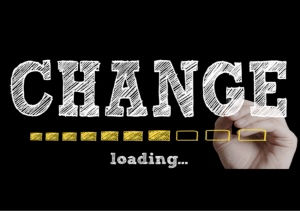Transitions and Change
- William Reed
- Dec 11, 2023
- 5 min read
Updated: Jan 25

We seem to be in a state of flux for so many things right now. It is no different for educators.

Educational Changes
Educators are transitioning from the old 2020 Indiana Academic Standards to the new 2023 Indiana Academic Standards. At the secondary level, we are transitioning from the old online/paper-pencil PSAT and SAT Assessments to the new Digital PSAT and SAT Assessments. In grades 3 through 8, there is one more year of the current ILEARN Assessment then there will be two years transitioning to the new ILEARN Assessment which include “Checkpoint” (the new benchmark) Assessments. Finally, everyone is finishing the first half of the school year and first semester and transitioning into the second half of the school year and second semester.
Transitions
Transitions are never easy! They always come with their share of challenges and unknowns. Change can be very scary for both teachers, students and all others involved with the changes. Change is much like grief in that there are stages associated with change. The New Leaders blog, “Five Insights for Leading and Managing Change in Your School” lists the seven stages of change as:
Becoming aware. Through an event, experience, or data, the need for change is signaled. An example might be that data from your annual district assessment shows declines in certain grades for ELA and math.
Denial. Your school community might defend the current situation. They might also feel the problem identified really isn’t that big of a deal.
Frustration. This is usually directed at the person pushing for the change. Some of this frustration is rooted in anxiety and self-doubt—perhaps your teachers are concerned about the need to acquire new skills or worry they’re no longer proficient.
Depression. Here, the feelings of self-doubt and worry might deepen. Your team might notice the implications of the behavior that needs to change, but there’s still resentment.
Exploration. A group begins to make a commitment to change. They’ve started to realize there’s pain in staying the same, so they begin to research and gather information.
Acceptance. This is when groups begin to take action. They believe they possess the ability to change. Self-confidence increases and action steps are planned.
Commitment. The group is fully committed to continuing change efforts, buoyed by successes and clear goals.
They go on to share the process leaders and teachers must take to deal with the changes and move through the seven stages of change. They share that leaders and teachers must, “Assess understanding of the change.” If you don’t understand the change and create/have a desire to make the changes needed, it will be almost impossible to make any changes. You must start by defining the changes you want to see or need to happen. The reason why change is necessary must be identified and communicated.
Group Effort
Change cannot happen on a singular basis. It must be a shared vision. There must be serious and forthright discussions about the change that is taking place or must take place. There needs to be lots of talking and even more importantly, lots of listening! Everyone must work together to affect the changes. For change to take place no person can be an island! The absolute most important thing to remember is change is S L O W!!! It happens over time and does not take place overnight! Finally, everyone must keep the changes being made in perspective! There will be hard times going through change. There will be setbacks when making any changes! Everyone must work together and keep all parties informed for any lasting changes to take place and your desired outcomes to be accomplished.

Staying Informed
Teachers, one of the best ways to deal with change and transitioning from one expectation to the new expectations is to keep yourself as informed as possible. The more you know the more informed decisions you will make. The more you are informed the better you will understand the next steps you can make to keep yourself moving in the right direction.
Some of the ways I stay informed and try my best to manage all the changes and transitions taking place in education these days is to subscribe to key informational sources. You can do this too and they are all FREE. Sources like Dr. Jenner’s weekly newsletter from the IDOE. You can see all the past newsletters and subscribe at: Dr. Jenner’s Weekly Newsletter. Another great source is Chalkbeat. There are other sources like your professional organization. NCTM, ICTM, NCSM, HASTI, NCTE, ICSS, ASCD, and others you might want to check out. All these sources along with your colleagues can get you through almost any transition.
Change is Hard
Overall, change is always difficult! Going through the constant transitions and changes that educators must deal with on a regular basis is taxing, grueling, and can take its toll. Everyone must make sure they do not overload themselves and take on more than they can handle during all the transition and changes. There are some very important things everyone must remember and remind themselves of on a regular basis.
As the old saying goes, “How do you eat an elephant? One bite at a time!” We must constantly be aware of our limits. Start making small changes by starting with one thing at a time. When you feel comfortable with the one thing you have done to transition and make a small change, move on to the next thing you have identified. Pretty soon those small individual changes and transitions make up a good movement to your goal. You will never reach your goal in one major change! It is a series of small movements toward your goal. We must also celebrate the success of the small steps we have taken and all that we have done along the way. Pretty soon, with effort and determination change will take place and you will transition from where you have been to where you should be going!
Conclusion
Remember, you can do anything with the support of others around you and with a good solid plan of action for what you want to accomplish. With determination and commitment, you will get through all the transitions and changes you experience on a regular basis. Hang in there! What you are doing really does make a difference in so many lives! Thank you for all you do.
Looking for Support?
Download this FREE Toolkit:




